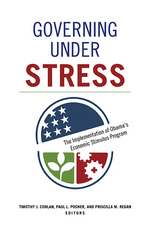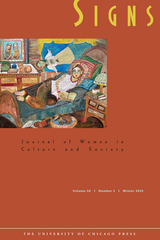
The underappreciated but surprisingly successful implementation of the American Recovery and Reinvestment Act (ARRA) helped rescue the economy during the Great Recession and represented one of the most important achievements of the Obama presidency. It tested all levels of government with urgent time frames and extensive accountability requirements. While ARRA passed most tests with comparatively little mismanagement or fraud, negative public and media perceptions of the initiative deprived the president of political credit.
Drawing on more than two hundred interviews and nationwide field research, Governing under Stress examines a range of ARRA stimulus programs to analyze the fraught politics, complex implementation, and impact of the legislation. Essays from public administration scholars use ARRA to study how to implement large federal programs in our modern era of indirect, networked governance. Throughout, the contributors present potent insights into the most pressing challenges facing public policy and management, and they uncover important lessons about policy instruments and networks, the effects of transparency and accountability, and the successes and failures of different types of government intervention.

While civics textbooks describe an idealized model of “how a bill becomes law;” journalists often emphasize special interest lobbying and generous campaign contributions to Congress; and other textbooks describe common stages through which all policies progress, these approaches fail to convey—much less explain—the tremendous diversity in political processes that shape specific policies in contemporary Washington.
Bridging the gap between textbook models of how public policy should work, and how the process actually works in contemporary Washington, Pathways of Power provides a framework that integrates the roles of political interests and policy ideals in the contemporary policy process. This book argues that the policy process can be understood as a set of four distinctive pathways of policymaking—pluralist, partisan, expert, and symbolic—that draw upon different political resources, appeal to different political actors, and elicit unique strategies and styles of coalition building.
Revealing the strategic behavior of policy actors who compete to shift policies onto pathways that maximize their resources and influence, the book provides a fresh approach to understanding the seeming chaos and volatility of the policy process today. The book’s use of a wide universe of major policy decisions and case studies, focused on such key areas as health care, federal budgeting, and tax policy, provides a useful foundation for students of the policy process as well as for policy practitioners eager to learn more about their craft.

During the past decade, Democrats and Republicans each have received about fifty percent of the votes and controlled about half of the government, but this has not resulted in policy deadlock. Despite highly partisan political posturing, the policy regime has been largely moderate. Incremental, yet substantial, policy innovations such as welfare reform; deficit reduction; the North American Free Trade Agreement; and the deregulation of telecommunications, banking, and agriculture have been accompanied by such continuities as Social Security and Medicare, the maintenance of earlier immigration reforms, and the persistence of many rights-based policies, including federal affirmative action.
In Seeking the Center, twenty-one contributors analyze policy outcomes in light of the frequent alternation in power among evenly divided parties. They show how the triumph of policy moderation and the defeat of more ambitious efforts, such as health care reform, can be explained by mutually supporting economic, intellectual, and political forces. Demonstrating that the determinants of public policy become clear by probing specific issues, rather than in abstract theorizing, they restore the politics of policymaking to the forefront of the political science agenda.
A successor to Martin A. Levin and Marc K. Landy’s influential The New Politics of Public Policy (Johns Hopkins University Press, 1995), this book will be vital reading for advanced undergraduate and graduate students in political science and public policy, as well as a resource for scholars in both fields.
READERS
Browse our collection.
PUBLISHERS
See BiblioVault's publisher services.
STUDENT SERVICES
Files for college accessibility offices.
UChicago Accessibility Resources
home | accessibility | search | about | contact us
BiblioVault ® 2001 - 2025
The University of Chicago Press









